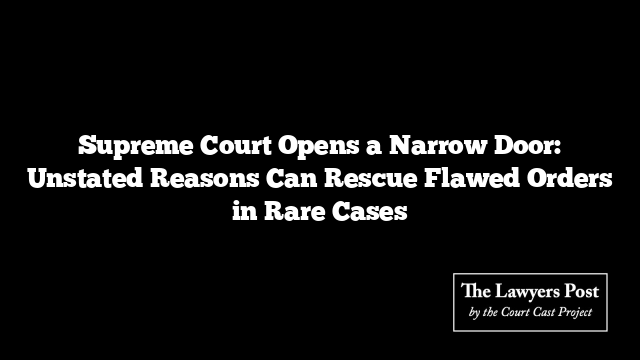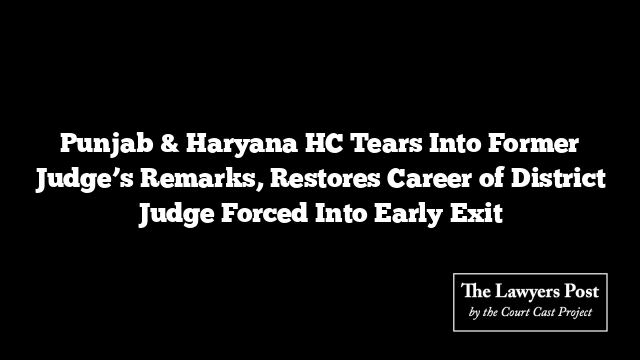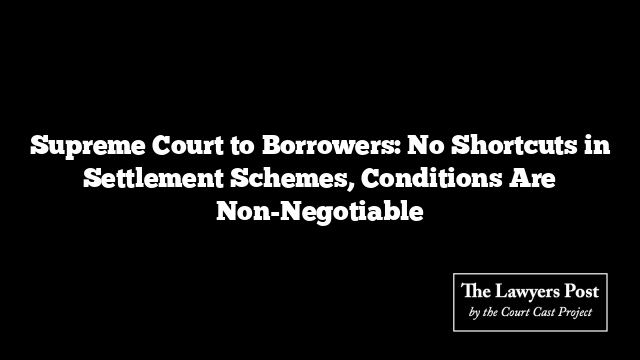The Supreme Court has carved out a slim but significant exception to the long-standing “speaking order” doctrine, ruling that an administrative order may, in limited circumstances, be upheld on grounds not explicitly written into it—so long as those grounds are already evident in the record.
A bench of Justices Dipankar Datta and A.G. Masih overturned a ruling from the Andhra Pradesh High Court, which had directed the State Bank of India (SBI) to reconsider a borrower’s one-time settlement (OTS) proposal. The borrower had repeatedly defaulted and failed to make the mandatory upfront deposit of 5% of dues, a precondition of the 2020 OTS scheme. While SBI’s rejection order had not cited this specific failure, the Supreme Court held that the omission did not rescue the borrower.
The Court stressed that fairness—not technical rigidity—should guide judicial review. It devised a three-part safeguard for when unstated but existing reasons may be relied upon:
-
If the reasons mentioned in the order collapse as untenable,
-
The court may “trace” a valid ground from the factual narrative or record, and
-
The party affected must be given notice and a fair chance to respond.
Justice Datta, writing for the bench, noted that while courts cannot permit authorities to smuggle in fresh reasons through affidavits or arguments, they may, in rare cases, recognize valid grounds already woven into the factual record. The aim, he explained, is to prevent injustice when a decision is otherwise supportable but poorly expressed.
This ruling marks a subtle departure from the landmark Mohinder Singh Gill v. Chief Election Commissioner precedent, which established that an order must stand or fall on its stated reasons. The Court clarified that while new grounds remain barred, existing but unstated ones can be relied upon if they meet the strict triple-test.
Applying this framework, the bench upheld SBI’s rejection of the borrower’s OTS plea, observing that the non-payment of the 5% threshold was clear from the scheme’s terms and undisputed by the borrower. The defect lay only in SBI’s failure to articulate the reason, not in the reason itself.





